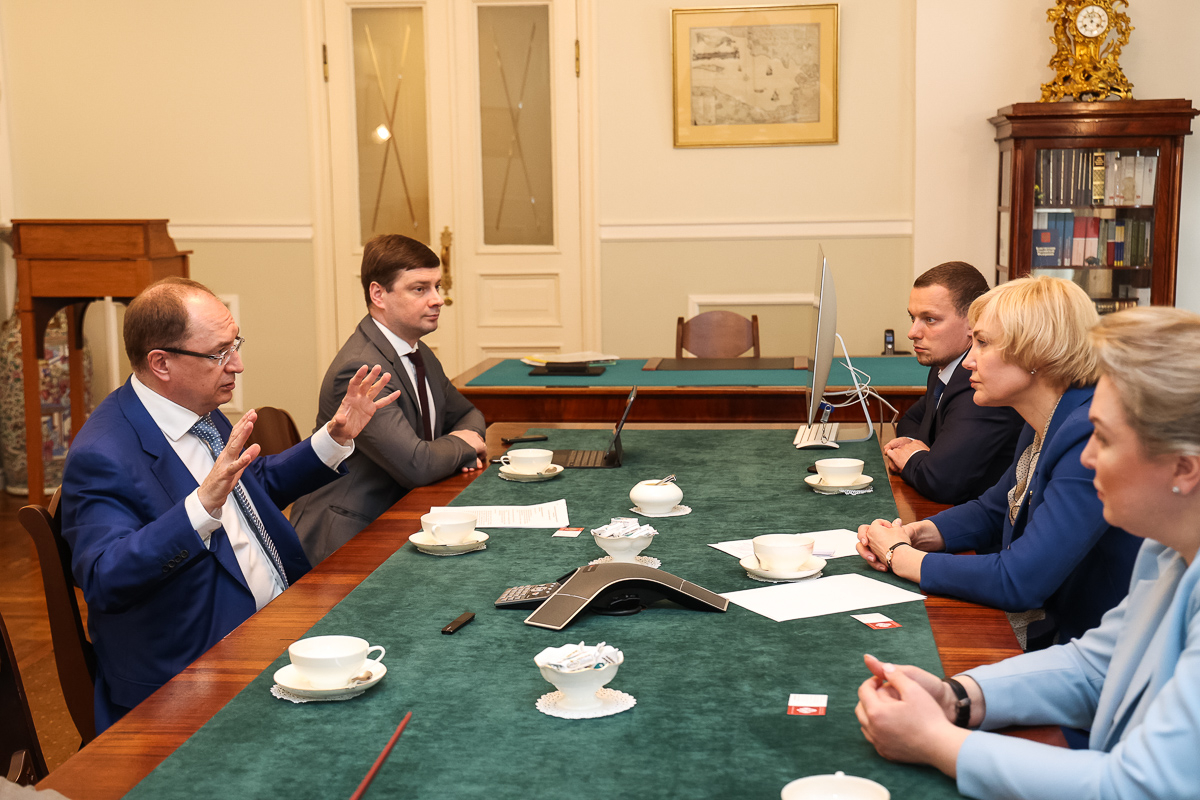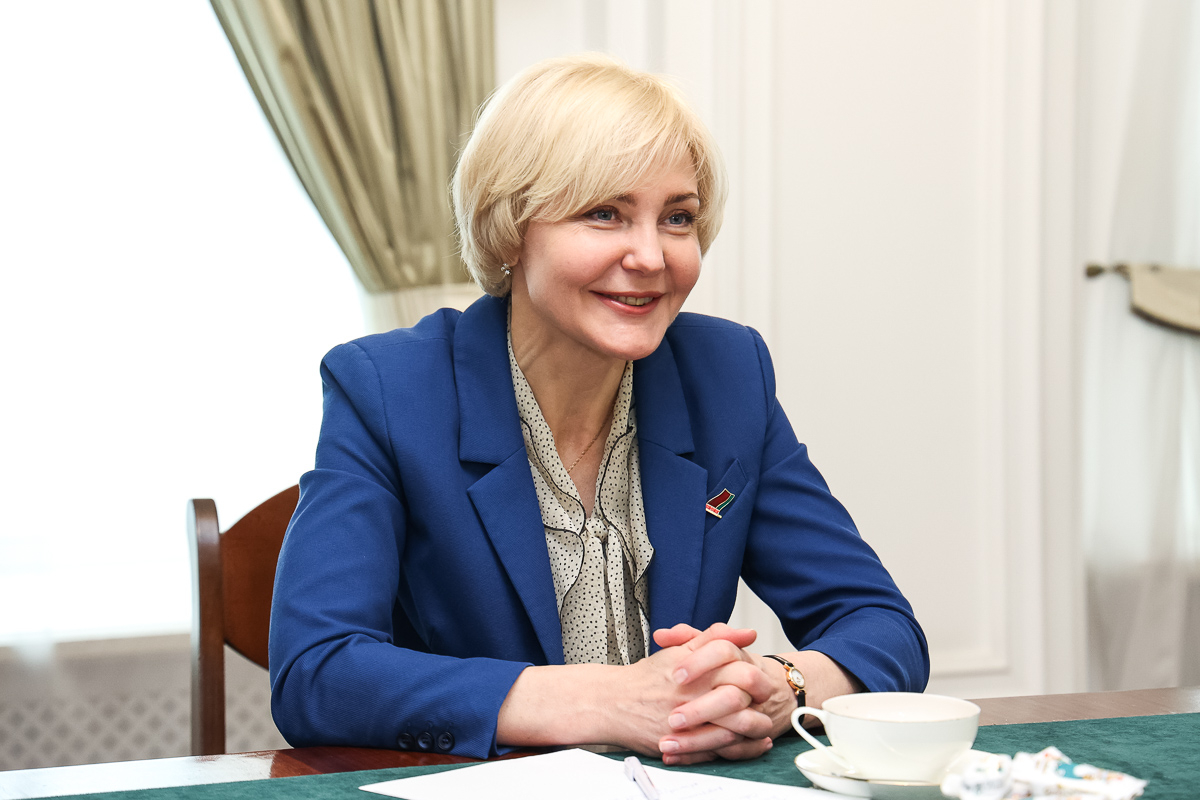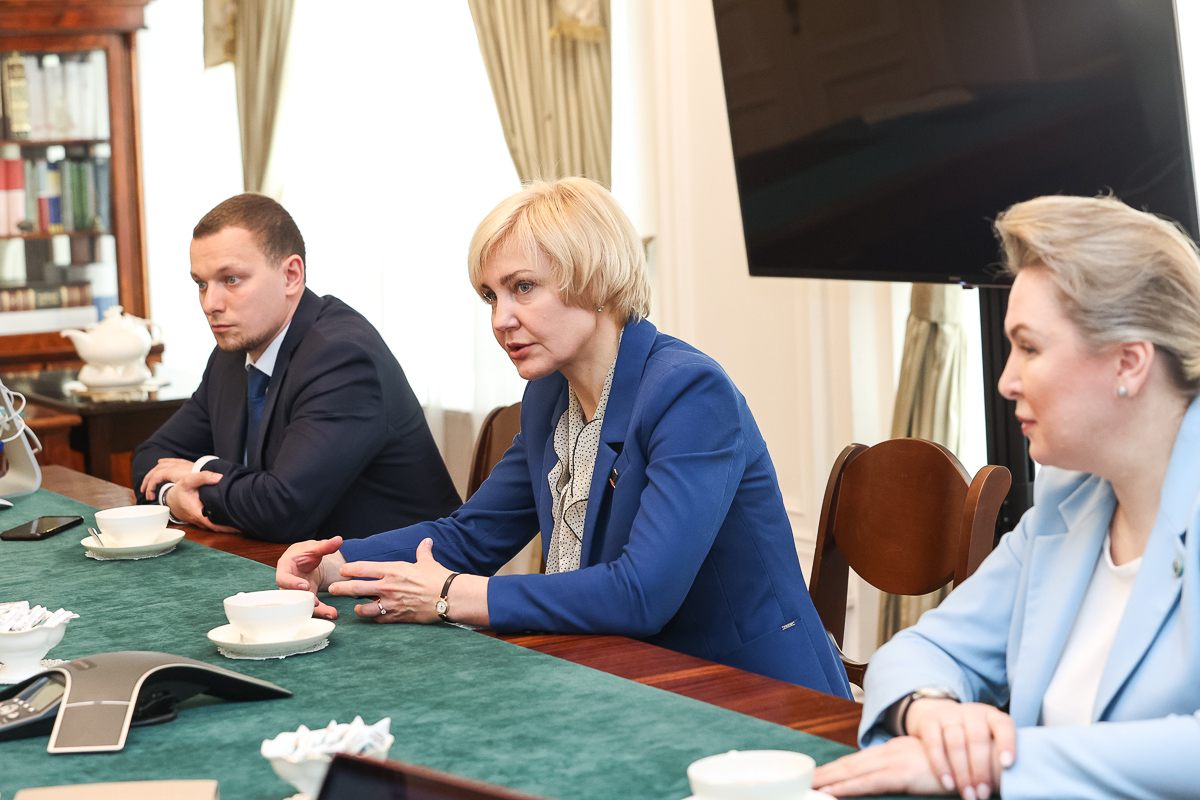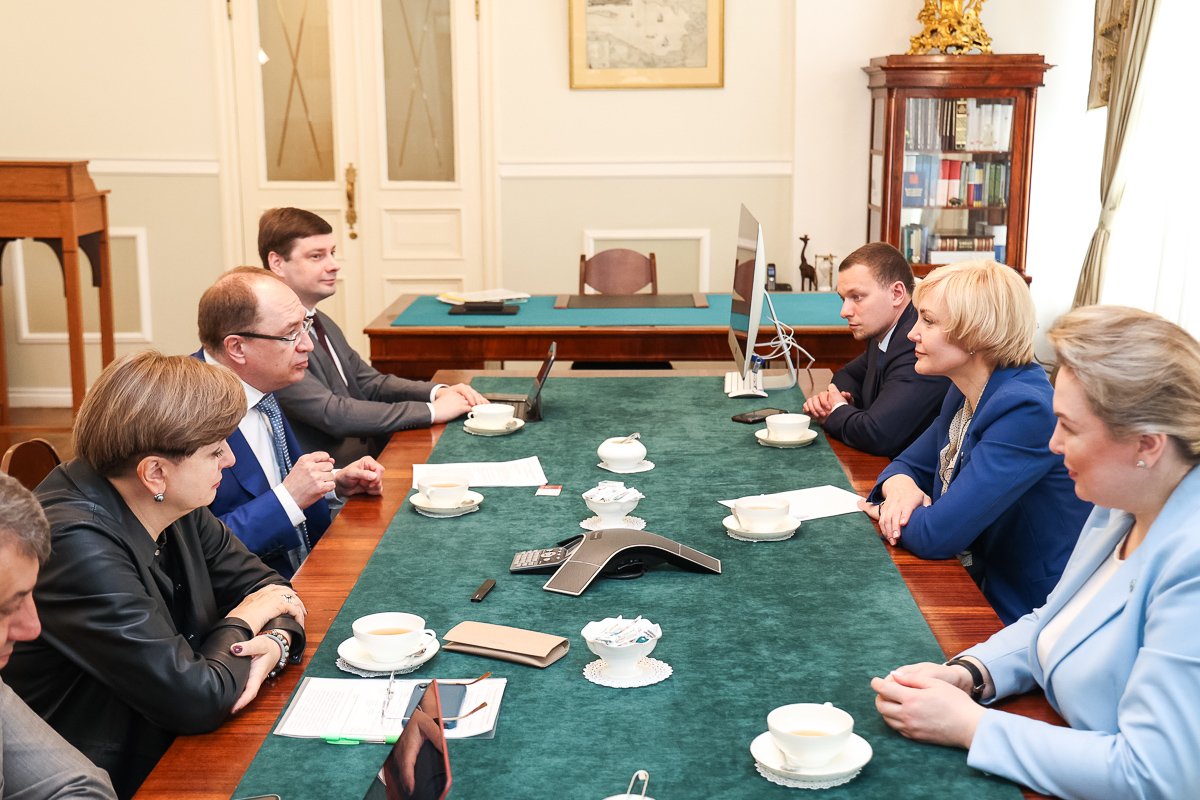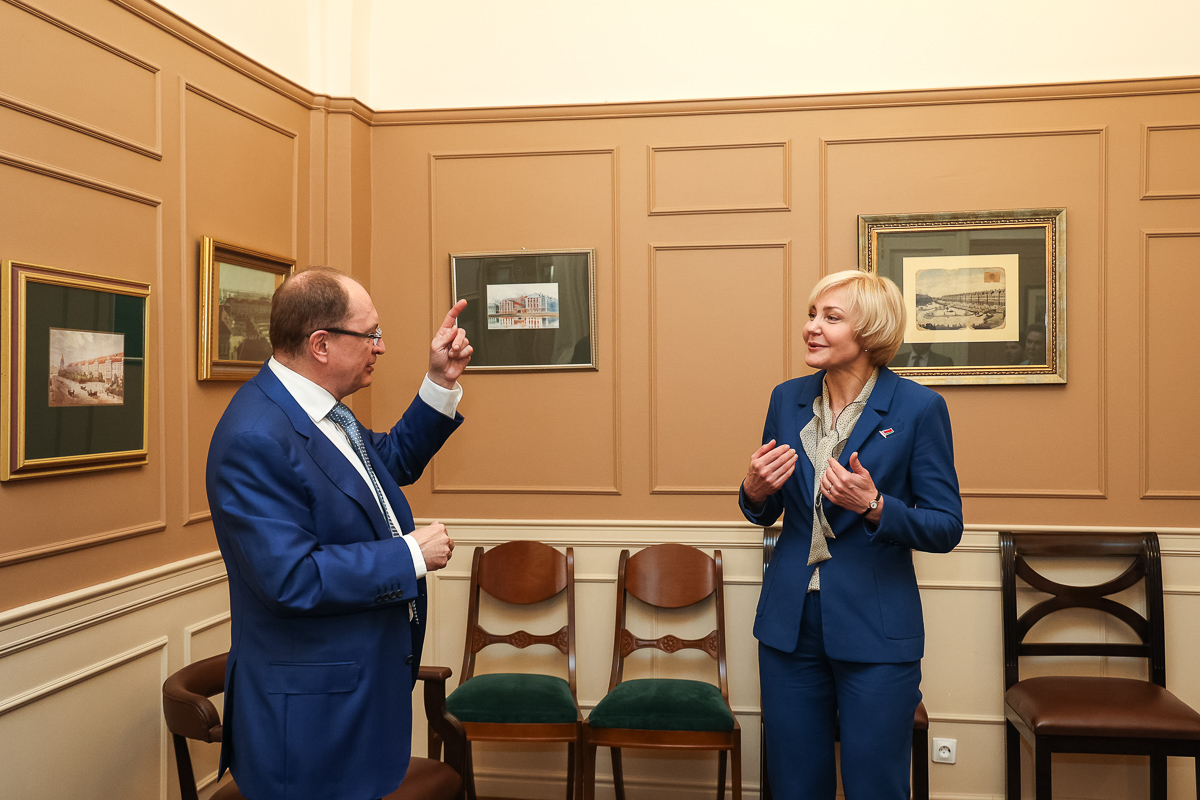Rector of St Petersburg University meets Deputy Head of the Presidential Administration of the Republic of Belarus
As part of the 11th St Petersburg International Legal Forum, Nikolay Kropachev, Rector of St Petersburg University, Corresponding Member of the Russian Academy of Sciences, has held a meeting with Olga Chupris, Deputy Head of the Presidential Administration of the Republic of Belarus.
The meeting was also attended by: Marina Lavrikova, Senior Vice-Rector for Academic Activities; Sergey Andryushin, Vice-Rector for International Affairs; and Vladimir Starostenko, Vice-Rector for Digital Transformation and Information Security.
Nikolay Kropachev shared the University’s experience in: organising scientific and educational activities; and involving law students in professional activities. For example, one of the most effective ways for students to acquire practical skills is to participate in the activities of the University clinic, where they provide legal assistance to citizens under the supervision of teachers. Every year, more than 2,000 Russian citizens turn to the University students and experts for help with legal issues. The clinical model of internships has been widely developed at St Petersburg University. At present, the University has 19 clinic, including: the Psychological Clinic; the Social Clinic; the Mediation Centre; the Linguistic Clinic; the Museum and Architectural Clinic; and the Centre for Financial Literacy to name just a few. The first of these was the Legal Clinic, which was established in 1998.
Students from St Petersburg University are also introduced to the realities of the legal industry through lectures and seminars: in particular, 100% of the academic staff of the Faculty of Law are practicing lawyers; and employers are members of state assessment committees and councils of academic programmes. The participation of business representatives makes it possible to update the academic programmes to meet the needs of the labour market. This helps students acquire the necessary skills and competencies.
Since 2010, St Petersburg University students have been involved in monitoring law enforcement practice . Every year, the University’s experts collect, summarise and analyse the practice of applying regulations, identifying situations in which decisions taken diverge from the intended meaning of these documents. The law enforcement issues identified in the monitoring process are brought to the attention of the heads of ministries and departments, heads of subjects, local authorities, as well as officials of other public authorities in the form of monthly expert reports on the results of monitoring.
The Rector of St Petersburg University also told his colleagues about the openness policy at St Petersburg University. According to him, university resources created at the expense of the federal budget are public property and should be publicly available. The unique Research Park of St Petersburg University with equipment worth over 7 billion roubles is a free access centre. Since 2014, it has been operating on the principle of public access for the University students and staff and for researchers who do not work at the University. This provides researchers across the country with an opportunity to carry out complex research that requires sophisticated and expensive facilities. St Petersburg University online courses are published openly on leading Russian and international educational platforms. During the pandemic, the University was the first to make them available to regional universities, helping to implement the online component and transfer credits for the courses taken online. Next academic year, St Petersburg University, with the support of the Ministry of Education of the Russian Federation, will open the first general online school for Russian-speaking students from all over the world.
During the meeting, the Rector suggested considering the possibility of signing a cooperation agreement between St Petersburg University and the Ministry of Education of the Republic of Belarus.


